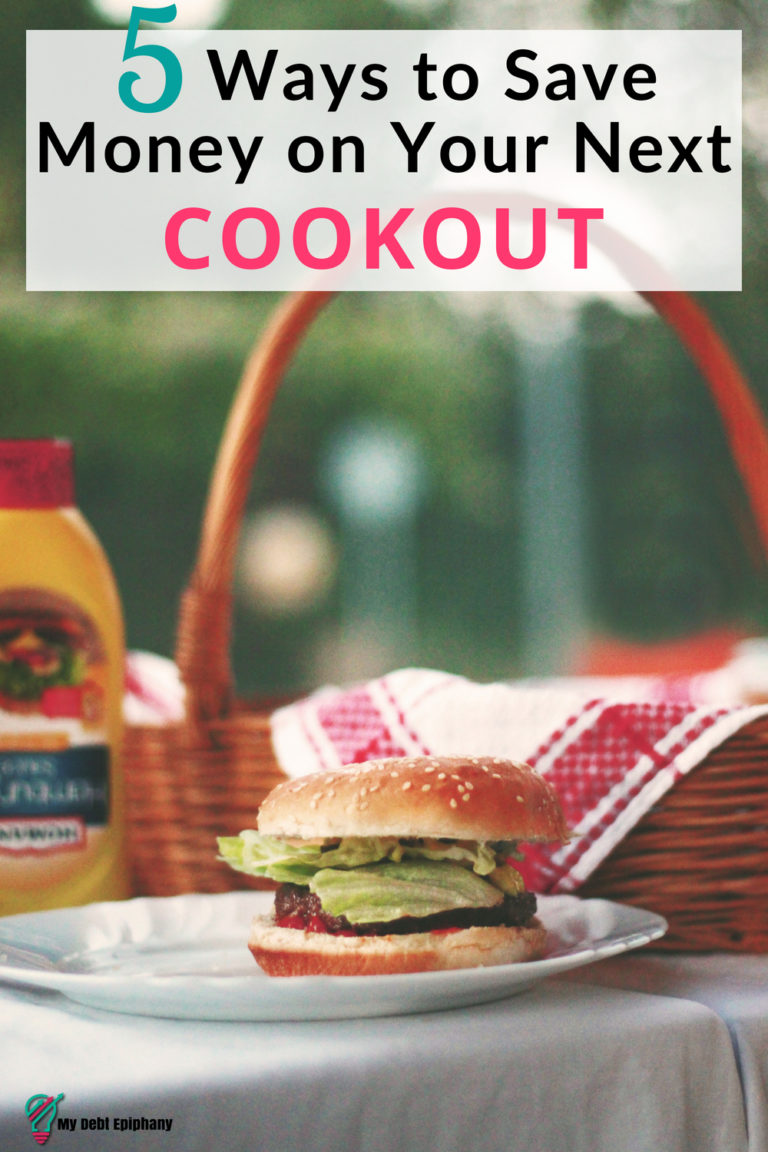Debt Mindset Series: Running a Marathon, Not a Sprint
Today I’m a bit sad to reveal that this is my last interview for the series for the time being. I’ve interviewed some amazing people about their debt repayment journies and I hope you’ve enjoyed the stories and inspiration as much as I have, but I’m putting the series on a break and may pick back up later in the year.
If you want to check out other interviews from the series, you can do so by clicking here.
Even though this is the last interview, we’re definitely going out with a bang because Jen’s interview is a very motivational that people who are in debt can relate to. Before we get into the interview, here’s a little bit about Jen.
 My name is Jen Hayes, and I am an HR professional by day and a frugal lifestyle blogger by night. When I finished grad school, I found myself buried in student loan debt, underemployed, and 50 pounds overweight.
My name is Jen Hayes, and I am an HR professional by day and a frugal lifestyle blogger by night. When I finished grad school, I found myself buried in student loan debt, underemployed, and 50 pounds overweight.
I decided to embark on a journey to shed 50 pounds and $117,000 of debt by 2018. I am passionate about helping fellow millennials to lead healthier lives – financially, physically, and mentally.
Table of Contents
How Much Debt Did You Start Out With and How Did You Accumulate It?
I finished grad school with $75,000 of student loan debt and my husband graduated from college with $42,000 in student loans. Every year when I signed my student loan documents, I would cringe when I saw the total but at the time, I felt like student loans were my only option.
I really thought I’d be flipping burgers for the rest of my life if I didn’t get a four-year degree. (I now know that I had a lot more options than I realized).
My BA degree was in psychology, which is impractical, so I decided to get my master’s in HR because I wanted to be a more marketable job candidate. I knew I would have more debt, but I thought it would be worth it because I’d be making “good” money.
I graduated from a competitive master’s program that boasted an average starting salary of $70,000 for its graduates. I lacked relevant work experience and knew I’d be making less than $70k/year, but I didn’t realize how much less. My first job paid $30k/year, which is the average starting salary for HR assistants.
Editor’s note: If you have a high student loan debt balance along with a high-interest rate, refinancing your student loans may be a solid solution to help you save money on interest and make more progress with paying off your debt. LendEdu is one of my favorite free resources to use when you’re considering refinancing because it lets you browse different offers for a lower interest rate without even running your credit so you can see what your options are. If interest on your student loans is costing you thousands per year, you can save thousands by refinancing.
When did you decide your debt was a problem? Did you have an ‘aha moment’ and what triggered it?
Yes. After finishing grad school, I was living with my parents and working a job that paid so little that nearly 50% of my income was going toward my minimum student loan payments. I was drowning in debt and didn’t know what to do about it, but I did know that I needed to find a better job.
I landed a job with a significant pay raise, and my husband and I decided to start looking for a home.
When we ran the numbers, we realized that we still couldn’t afford to buy a home or rent an apartment. Even if I found another new job with a big raise, it still wouldn’t be enough.
We were drowning, and the only way to get out was to pay off the debt as fast as possible. This was our “aha” moment.
We decided to live with my parents for three years while we pay our loans off as quickly as possible and then save for a down payment on a house.
Related: Creating a Student Loan Debt Plan of Attack
How to Afford Defaulting on Your Student Loans
Non-Traditional Housing Alternatives to Consider
Did you implement a specific strategy to start paying off your debt? Why did you use that strategy?
It’s a combination of two things: earning more and spending less.
We both side hustle – my husband does freelance graphic design/web design projects and works as a part-time assistant to a wedding photographer. I earn extra income through blogging (primarily via sponsored posts and freelance writing).
The most important part of our strategy, however, is extreme frugality. We’re currently on a three-year spending ban – we don’t spend any money on outings with friends (we do free things instead) or on non-necessities.
We stick to a bare bones budget. My husband has a hard time with this because he’s a spender, but taking Financial Peace University helped to motivate him to get his spending under control.
Related: 80+ Ways to Earn Extra Money
How to Get Started With Freelance Writing
How to Save Money in Almost Every Area of Your Life
What were some obstacles you were/are faced with? How did you deal with the days when you lost motivation?
The two biggest obstacles for me are “comparisonitis” and unexpected setbacks. Many people my age are buying their first homes, starting families, and traveling the world. It’s easy to feel jealous and to wish I was doing those things.
I have to remind myself that the journey to financial freedom is a marathon, not a sprint. It will take a long time before we get to where we want to be financially, but it will be well worth it when we get there. Many people who seem to “have it all” right now are actually financing their lives with debt – that’s not worth it to me.
The other obstacle is unexpected setbacks – we have an emergency fund, which allows us to deal with emergencies without adding to our debt. However, large expenses still delay our debt payoff and that’s frustrating.
We’ve had some major expenses we didn’t expect – like traveling to Arizona for my grandpa’s funeral and some medical expenses. Every time something like this happens, I remind myself that this is why financial freedom is so important. Someday when emergencies occur, we will have so much money in the bank we won’t have to worry about it.
Related: How to Stay Motivated During Your Debt Payoff Journey
What motivates you? What would you say to people who think they can’t get out of debt in an attempt to change their mindset?
I’ve read so many incredible stories written by people who were in extraordinarily difficult circumstances but managed to turn things around. You might get frustrated if you read stories about people who make a lot more money than you do or have less debt than you have.
But there are people out there who have achieved financial freedom despite insane amounts of debt or extremely low incomes. If they can do it, so can you!
It’s not easy, but the formula is simple: earn more + spend less. Cut every expense you can. If you still aren’t making it, you have an income problem and you need to find a second (or third) job, work overtime, or find a job that pays more. You will have to make some difficult changes. You won’t get out of debt by continuing to do what you’ve been doing.

Learn More About Jen
You can find me blogging on Frugal Millennial and can connect with me on Facebook, Twitter, Pinterest, and Instagram.
Stop Worrying About Money and Regain Control

Join 5,000+ others to get access to free printables to help you manage your monthly bills, reduce expenses, pay off debt, and more. Receive just two emails per month with exclusive content to help you on your journey.





